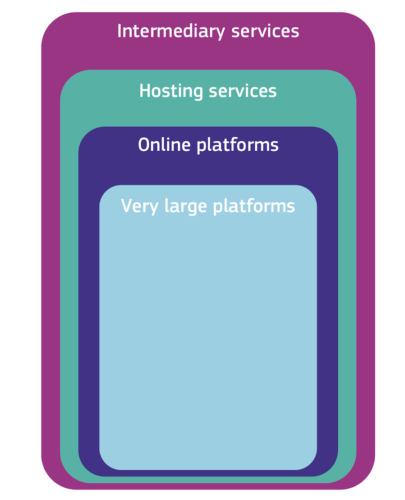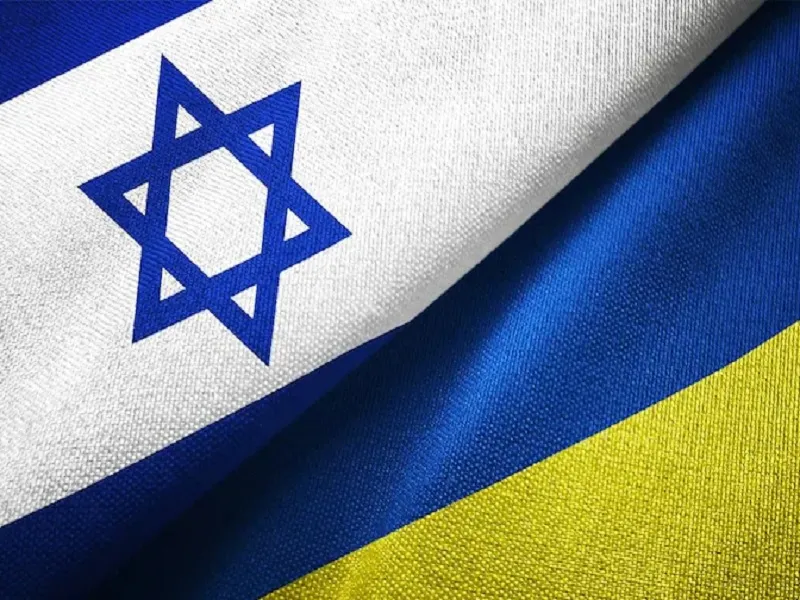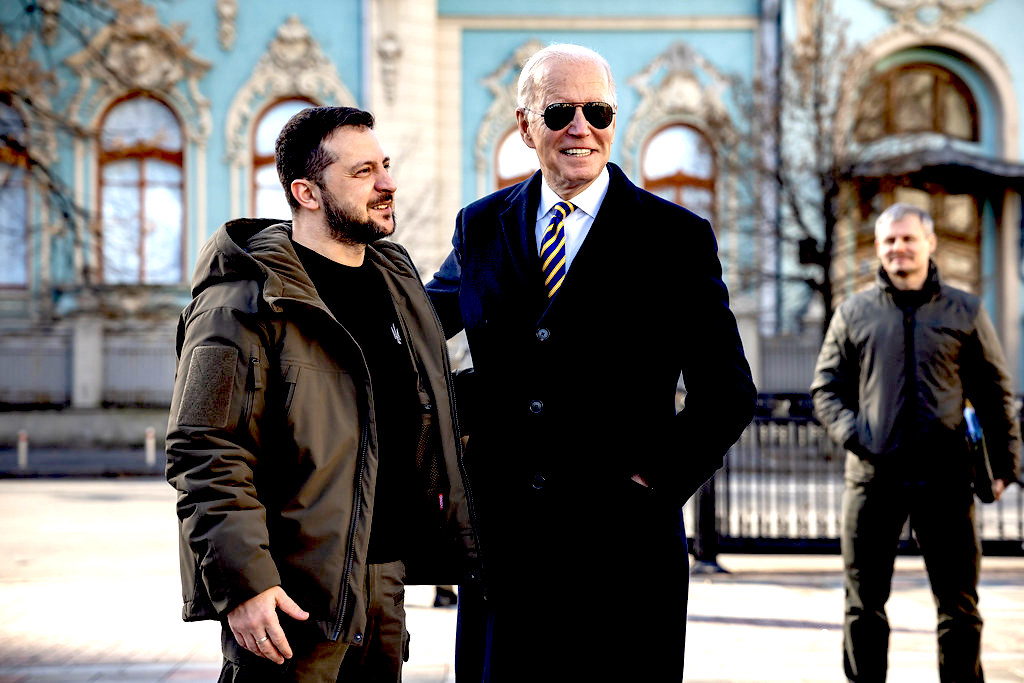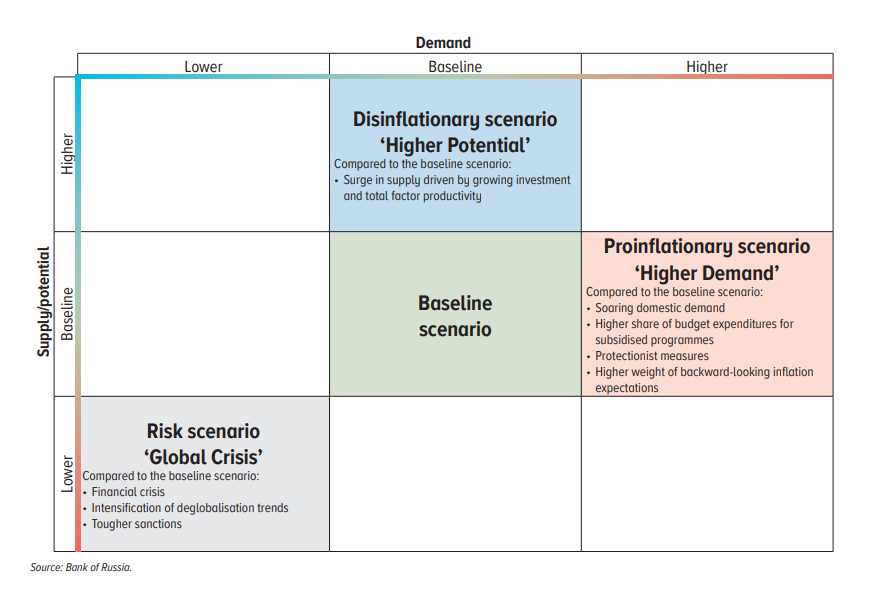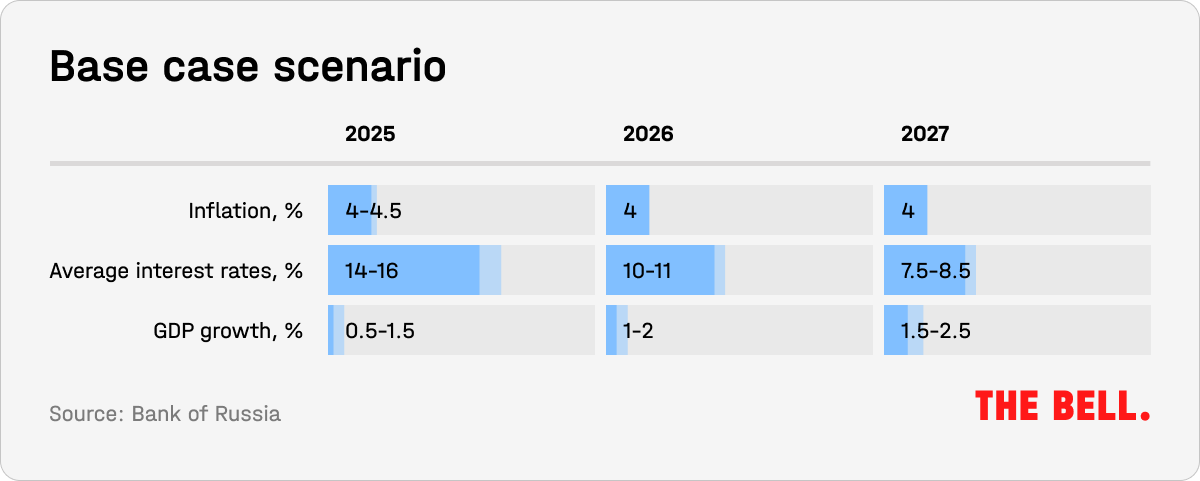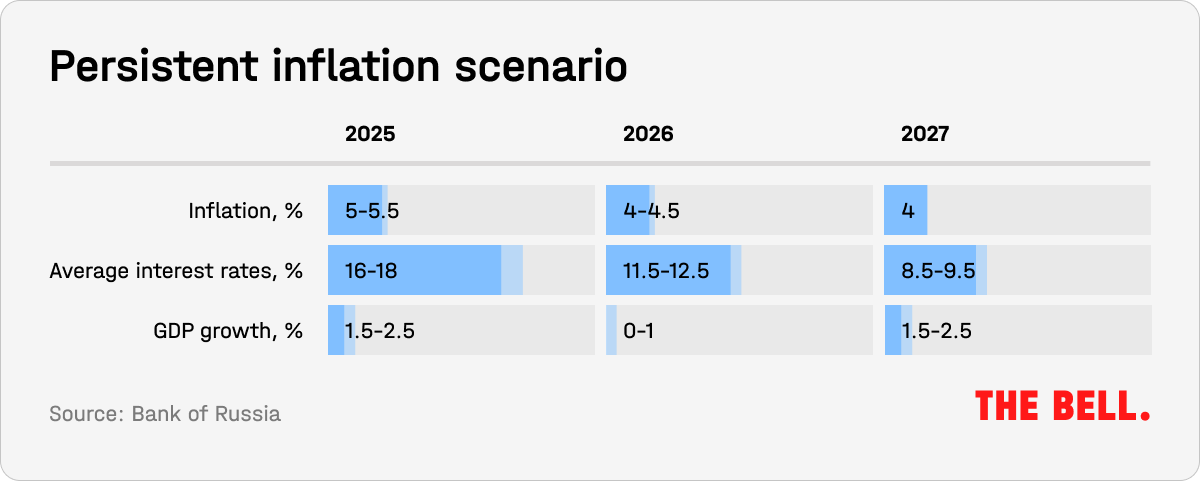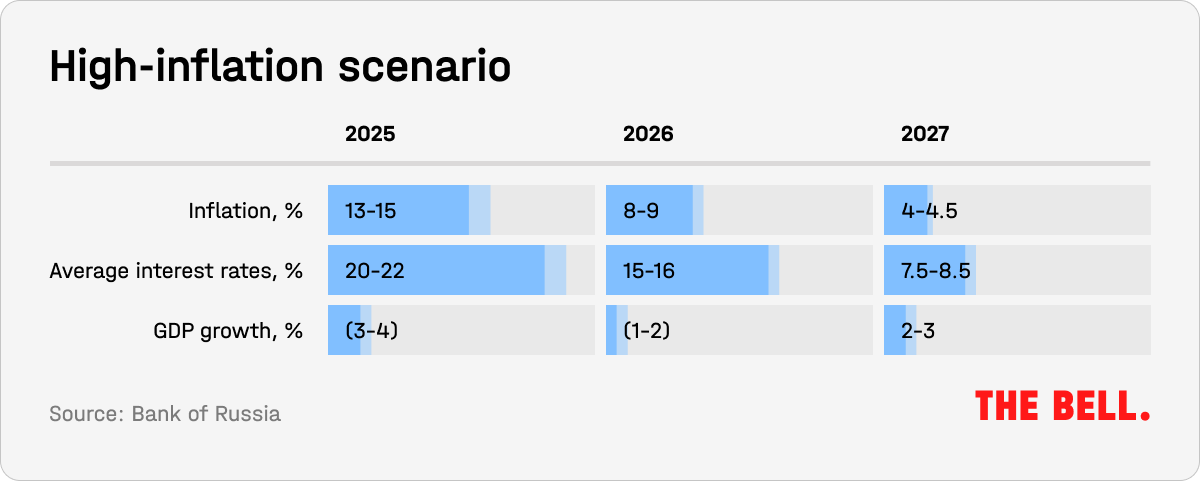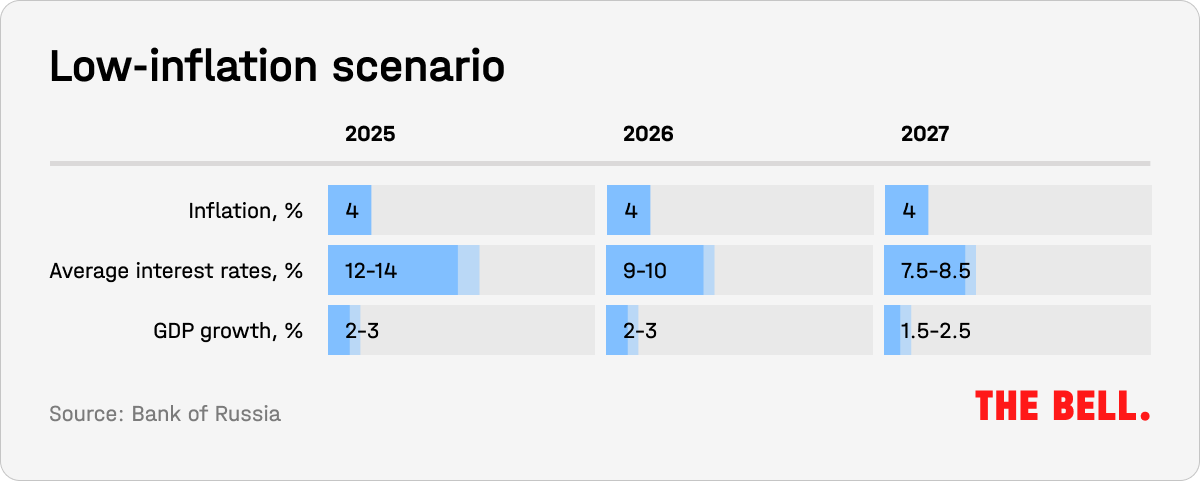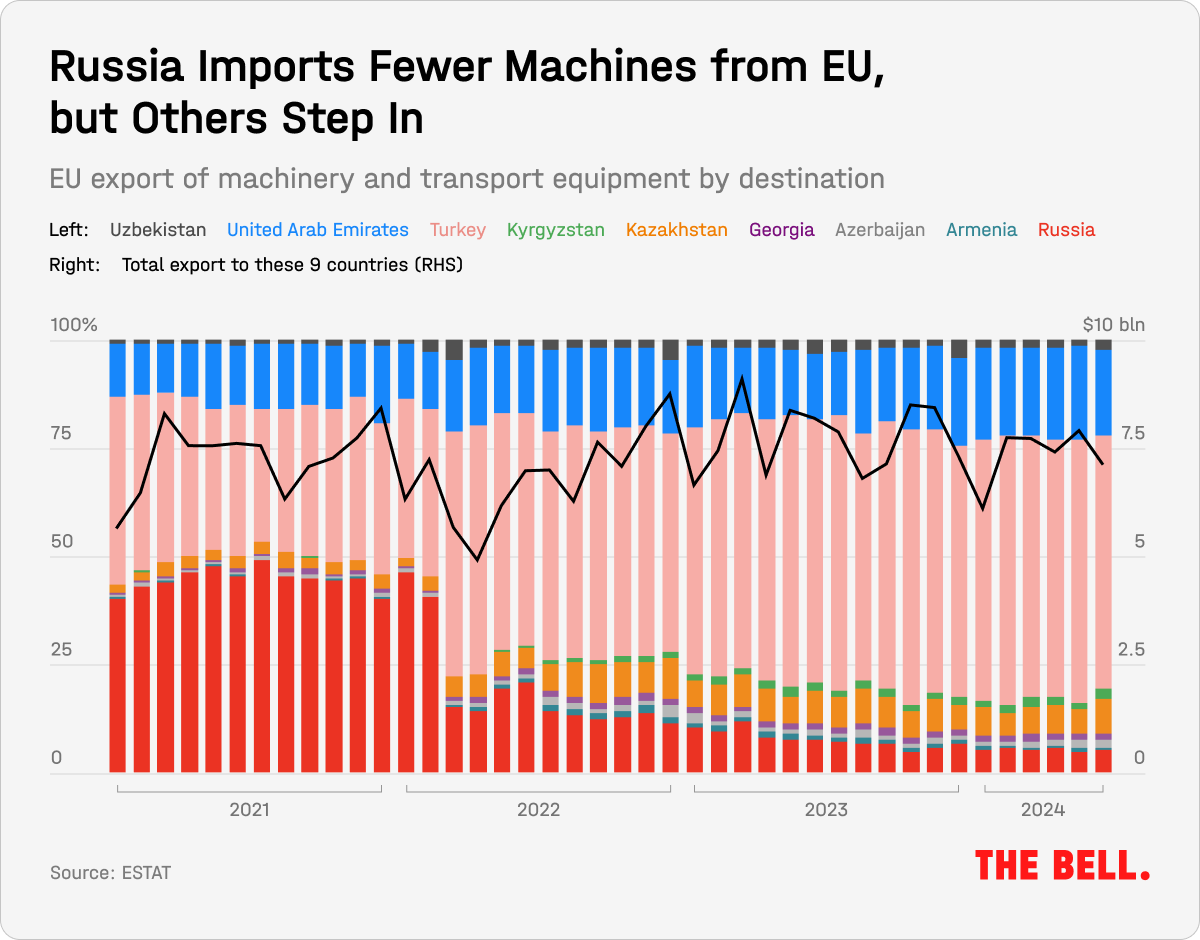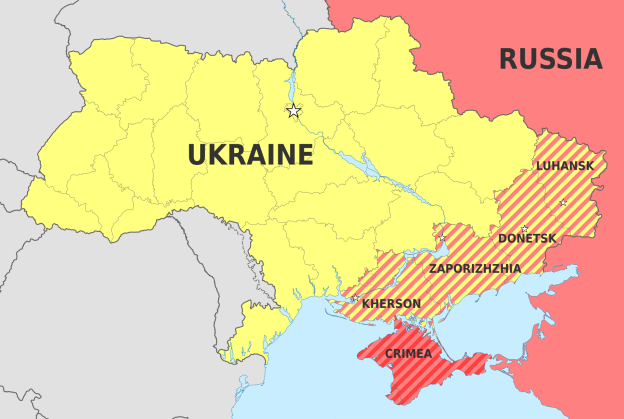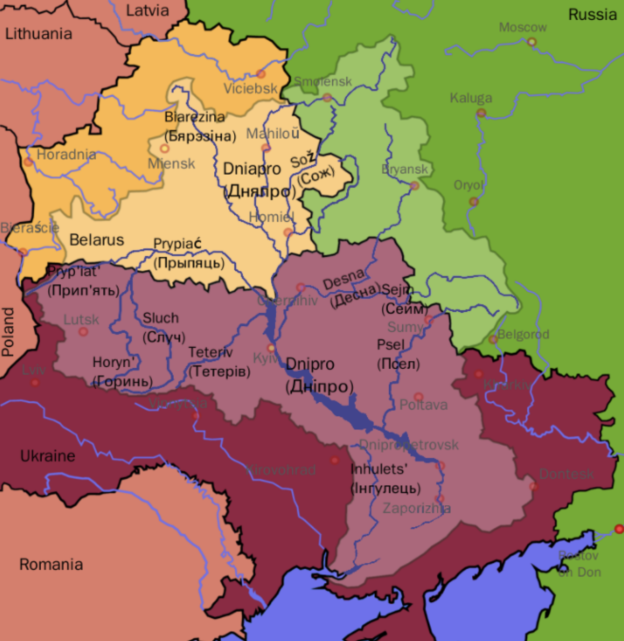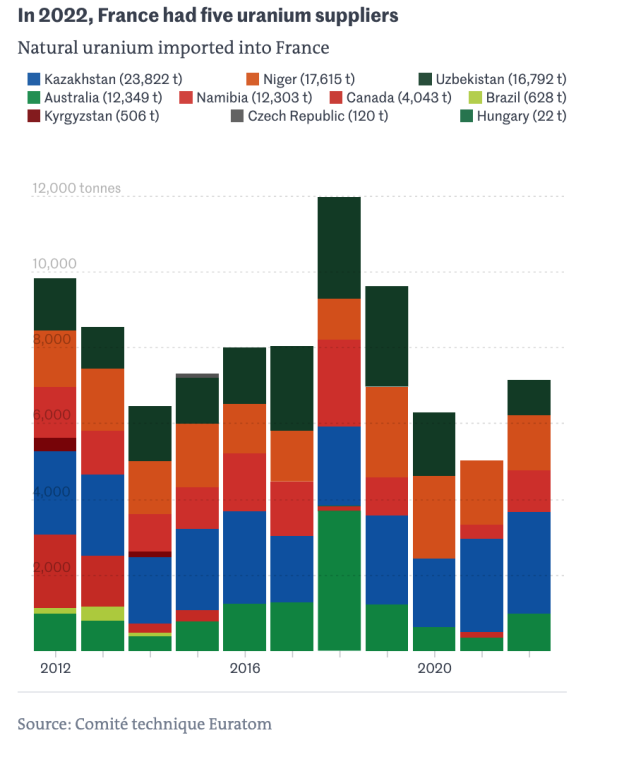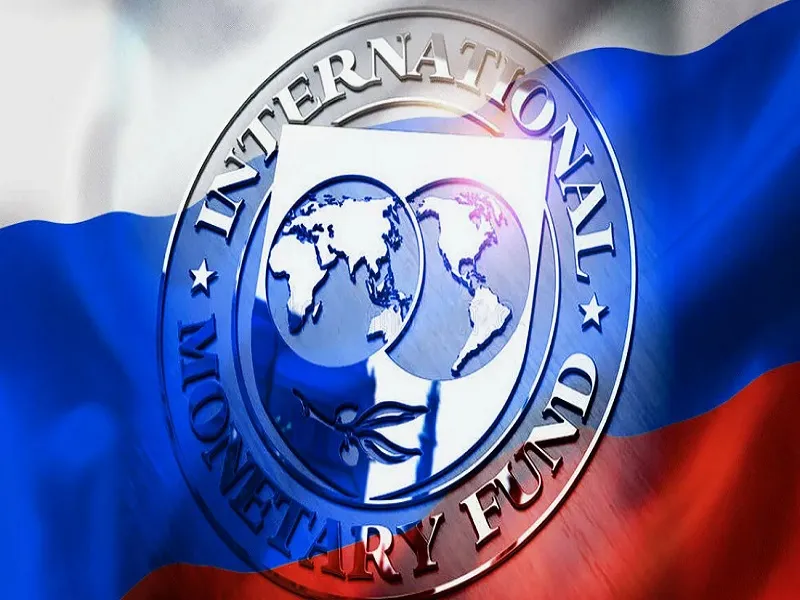Andrew Korybko
Aug 29, 2024
https://covertactionbulletin.podbean.co ... -arrested/
The founder and CEO of social media and communications app Telegram, Pavel Durov was arrested in France on August 24th. The country, one of the Nine Eyes intelligence partners along with the U.S., UK, Australia and others, claims that the social media app is a hotbed for illegal activity, and Western media coverage blasts it as a tool of the Russian government. But the attack on Telegram is actually a testing ground for future attacks on encrypted messaging platforms and alternative news sources.
Then later in the show, we discuss the invasion by Ukrainian forces funded with U.S. dollars and using British tanks into the Russian territory of Kursk. The incursion marked the first significant breach of the Russian border by Ukrainian ground forces in the nearly two-and-a-half years since the immediate conflict began and follows a pattern of missile strikes and minor raids into Kursk and neighboring Belgorod since February 2022. Is this the sequel to the Ukrainian counteroffensive of 2023 that was hyped up by Western media and governments but ultimately failed to make a significant difference? How do these developments figure into the longer history of the conflict, going back to 2014 and even further into history? And what prospects are there for peace rather than further escalation into a global conflict?
We’re joined by investigative journalist Kit Klarenberg to talk about all that and more.
https://covertactionmagazine.com/2024/0 ... -arrested/
*****
Craig Murray: Pavel Durov & the Abuse of Law
August 29, 2024
After spending a day reading the EU Digital Services Act — a task he wouldn’t wish on his worst enemy — Murray concludes it is not why the Telegram CEO is being detained.

Pavel Durov, CEO and co-founder of Telegram, in 2015. (TechCrunch, Flickr, CC BY 2.0)
By Craig Murray
CraigMurray.org.uk
The detention of Pavel Durov is being portrayed as a result of the EU Digital Services Act. But having spent my day reading the EU Services Act (a task I would not wish upon my worst enemy), it does not appear to me to say what it is being portrayed as saying.
EU Acts are horribly dense and complex, and are published as “Regulations” and “Articles.” Both cover precisely the same ground, but for purposes of enforcement the more detailed “Regulations” are the more important, and those are referred to below. The “Articles” are entirely consistent with this.
[Durov was formally charged on Wednesday and prevented from leaving France.]
So, for example, Regulation 20 makes the “intermediary service,” in this case Telegram, only responsible for illegal activity using its service if it has deliberately collaborated in the illegal activity.
Providing encryption or anonymity specifically does not qualify as deliberate collaboration in illegal activity.
“(20) Where a provider of intermediary services deliberately collaborates with a recipient of the services in order to undertake illegal activities, the services should not be deemed to have been provided neutrally and the provider should therefore not be able to benefit from the exemptions from liability provided for in this Regulation.
This should be the case, for instance, where the provider offers its service with the main purpose of facilitating illegal activities, for example by making explicit that its purpose is to facilitate illegal activities or that its services are suited for that purpose. The fact alone that a service offers encrypted transmissions or any other system that makes the identification of the user impossible should not in itself qualify as facilitating illegal activities.”
And at para 30, there is specifically no general monitoring obligation on the service provider to police the content. In fact it is very strong that Telegram is under no obligation to take proactive measures.
“(30) Providers of intermediary services should not be, neither de jure, nor de facto, subject to a monitoring obligation with respect to obligations of a general nature. This does not concern monitoring obligations in a specific case and, in particular, does not affect orders by national authorities in accordance with national legislation, in compliance with Union law, as interpreted by the Court of Justice of the European Union, and in accordance with the conditions established in this Regulation.
Nothing in this Regulation should be construed as an imposition of a general monitoring obligation or a general active fact-finding obligation, or as a general obligation for providers to take proactive measures in relation to illegal content.”

The Telegram app on a smartphone screen. (Focal Foto, Flickr, CC BY-NC 2.0)
However, Telegram is obliged to act against specified accounts in relation to an individual order from a national authority concerning specific content. So while it has no general tracking or censorship obligation, it does have to act at the instigation of national authorities over individual content.
[i[“(31) Depending on the legal system of each Member State and the field of law at issue, national judicial or administrative authorities, including law enforcement authorities, may order providers of intermediary services to act against one or more specific items of illegal content or to provide certain specific information. The national laws on the basis of which such orders are issued differ considerably and the orders are increasingly addressed in cross-border situations.
In order to ensure that those orders can be complied with in an effective and efficient manner, in particular in a cross-border context, so that the public authorities concerned can carry out their tasks and the providers are not subject to any disproportionate burdens, without unduly affecting the rights and legitimate interests of any third parties, it is necessary to set certain conditions that those orders should meet and certain complementary requirements relating to the processing of those orders.
Consequently, this Regulation should harmonise only certain specific minimum conditions that such orders should fulfil in order to give rise to the obligation of providers of intermediary services to inform the relevant authorities about the effect given to those orders. Therefore, this Regulation does not provide the legal basis for the issuing of such orders, nor does it regulate their territorial scope or cross-border enforcement.”[/i]
The national authorities can demand content is removed, but only for “specific items”:
“51) Having regard to the need to take due account of the fundamental rights guaranteed under the Charter of all parties concerned, any action taken by a provider of hosting services pursuant to receiving a notice should be strictly targeted, in the sense that it should serve to remove or disable access to the specific items of information considered to constitute illegal content, without unduly affecting the freedom of expression and of information of recipients of the service.
Notices should therefore, as a general rule, be directed to the providers of hosting services that can reasonably be expected to have the technical and operational ability to act against such specific items. The providers of hosting services who receive a notice for which they cannot, for technical or operational reasons, remove the specific item of information should inform the person or entity who submitted the notice.”
There are extra obligations for Very Large Online Platforms, which have over 45 million users within the EU. These are not extra monitoring obligations on content, but rather extra obligations to ensure safeguards in the design of their systems:
“(79) Very large online platforms and very large online search engines can be used in a way that strongly influences safety online, the shaping of public opinion and discourse, as well as online trade. The way they design their services is generally optimised to benefit their often advertising-driven business models and can cause societal concerns.
The Digital Services Act’s rules vary for different online entities to match their role, size and impact in the online system. (European Commission, Wikimedia Commons, CC BY 4.0)
Effective regulation and enforcement is necessary in order to effectively identify and mitigate the risks and the societal and economic harm that may arise.
Under this Regulation, providers of very large online platforms and of very large online search engines should therefore assess the systemic risks stemming from the design, functioning and use of their services, as well as from potential misuses by the recipients of the service, and should take appropriate mitigating measures in observance of fundamental rights.
In determining the significance of potential negative effects and impacts, providers should consider the severity of the potential impact and the probability of all such systemic risks. For example, they could assess whether the potential negative impact can affect a large number of persons, its potential irreversibility, or how difficult it is to remedy and restore the situation prevailing prior to the potential impact.
(80) Four categories of systemic risks should be assessed in-depth by the providers of very large online platforms and of very large online search engines. A first category concerns the risks associated with the dissemination of illegal content, such as the dissemination of child sexual abuse material or illegal hate speech or other types of misuse of their services for criminal offences, and the conduct of illegal activities, such as the sale of products or services prohibited by Union or national law, including dangerous or counterfeit products, or illegally-traded animals.
For example, such dissemination or activities may constitute a significant systemic risk where access to illegal content may spread rapidly and widely through accounts with a particularly wide reach or other means of amplification. Providers of very large online platforms and of very large online search engines should assess the risk of dissemination of illegal content irrespective of whether or not the information is also incompatible with their terms and conditions.
This assessment is without prejudice to the personal responsibility of the recipient of the service of very large online platforms or of the owners of websites indexed by very large online search engines for possible illegality of their activity under the applicable law.”

(LIBER Europe, Flickr, CC BY 2.0)
“(81) A second category concerns the actual or foreseeable impact of the service on the exercise of fundamental rights, as protected by the Charter, including but not limited to human dignity, freedom of expression and of information, including media freedom and pluralism, the right to private life, data protection, the right to non-discrimination, the rights of the child and consumer protection.
Such risks may arise, for example, in relation to the design of the algorithmic systems used by the very large online platform or by the very large online search engine or the misuse of their service through the submission of abusive notices or other methods for silencing speech or hampering competition.
When assessing risks to the rights of the child, providers of very large online platforms and of very large online search engines should consider for example how easy it is for minors to understand the design and functioning of the service, as well as how minors can be exposed through their service to content that may impair minors’ health, physical, mental and moral development. Such risks may arise, for example, in relation to the design of online interfaces which intentionally or unintentionally exploit the weaknesses and inexperience of minors or which may cause addictive behaviour.
(82) A third category of risks concerns the actual or foreseeable negative effects on democratic processes, civic discourse and electoral processes, as well as public security.
(83) A fourth category of risks stems from similar concerns relating to the design, functioning or use, including through manipulation, of very large online platforms and of very large online search engines with an actual or foreseeable negative effect on the protection of public health, minors and serious negative consequences to a person’s physical and mental well-being, or on gender-based violence.
Such risks may also stem from coordinated disinformation campaigns related to public health, or from online interface design that may stimulate behavioural addictions of recipients of the service.
(84) When assessing such systemic risks, providers of very large online platforms and of very large online search engines should focus on the systems or other elements that may contribute to the risks, including all the algorithmic systems that may be relevant…”
This is very interesting. I would argue that under Article 81 and 84, for example, the blatant use of both algorithms limiting reach and plain blocking by Twitter and Facebook, to promote a pro-Israeli narrative and to limit pro-Palestinian content, was very plainly a breach of the EU Digital Services Directive by deliberate interference with “freedom of expression and information, including media freedom and pluralism.”
The legislation is very plainly drafted with the specific intent of outlawing the use of algorithms to interfere with freedom of speech and public discourse in this way.
But it is of course a great truth that the honesty and neutrality of prosecution services is much more important to what actually happens in any “justice” system than the actual provisions of legislation.
Only a fool would be surprised that the EU Digital Services Act is being shoehorned into use against Durov, apparently for lack of cooperation with Western intelligence services and being a bit Russian, and is not being used against either Elon Musk or Mark Zuckerberg for limiting the reach of pro-Palestinian content.
It is also worth noting that Telegram is not considered to be a very large online platform by the EU Commission who have to date accepted Telegram’s contention that it has less than 45 million users in the EU, so these extra obligations do not apply.
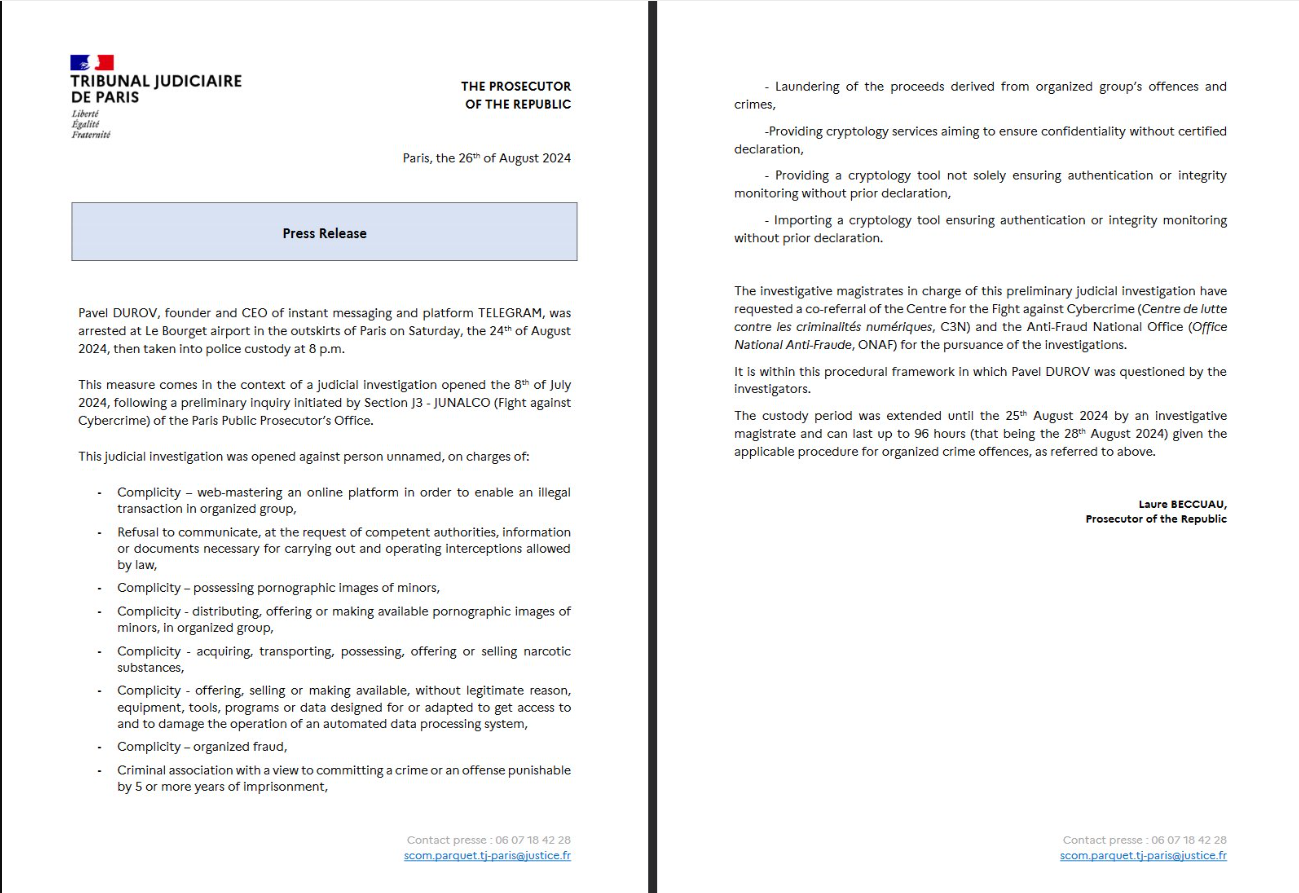
If we look at the charges against Durov in France, I therefore cannot see how they are in fact compatible with the EU Digital Services Act.
Unless he refused to remove or act over specific individual content specified by the French authorities, or unless he set up Telegram with the specific intent of facilitating organised crime, I do not see how Durov is not protected under Articles 20 and 30 and other safeguards found in the Digital Services Act.
The French charges appear however to be extremely general and not to relate to particular specified communications. This is an abuse.
What the Digital Services Act does not contain is a general obligation to hand over unspecified content or encryption keys to police forces or security agencies. It is also remarkably reticent on “misinformation.”
Regulations 82 or 83 above obviously provide some basis for “misinformation” policing, but the Act in general relies on the rather welcome assertion that regulations governing what speech and discourse is legal should be the same offline as online.
So in short, the arrest of Pavel Durov appears to be pretty blatant abuse and only very tenuously connected to the legal basis given as justification. This is simply a part of the current rising wave of authoritarianism in Western “democracies”.
https://consortiumnews.com/2024/08/29/c ... se-of-law/
******
The mysterious arrest of Pavel Durov, CEO of Telegram
Aug 27, 2024 , 3:25 pm .

Telegram founder and CEO Pavel Durov during a speech in Spain (Photo: Reuters)
On August 24, French police arrested Pavel Durov, founder of the messaging app Telegram, after he landed at Paris-Le Bourget airport on a private plane from Azerbaijan. According to French media, an arrest warrant had been issued for the 39-year-old Russian businessman as part of a preliminary investigation.
The country accuses him of being an accomplice to drug trafficking, child abuse and fraud since there is "little moderation on Telegram" and Durov has not cooperated "sufficiently" with the police to investigate these cases. This Monday, August 26, his preventive detention was extended for 48 hours and, once the deadline has expired, the authorities must decide whether to release him or press charges against him.
The case was opened a month ago on 12 alleged criminal offences, including complicity in the sale of child sexual abuse material and drug trafficking, fraud, complicity in organised crime transactions and refusal to share information or documents with investigators when required by law.
France's anti-fraud and cybercrime offices are in charge of the investigation and, if sufficient evidence is found, he could face up to 20 years in prison. Durov is subject to French justice because he obtained citizenship in 2021. In addition to being Russian by birth, he is also a citizen of the United Arab Emirates and Saint Kitts and Nevis.
For French columnist and presenter Rachel Marsden, it is curious that the businessman obtained French nationality without even having lived in the country, since a minimum of five years of residence with payment of taxes included in that period is required.
The reactions
Durov's arrest has sparked a variety of reactions and interpretations. On the one hand, it is said that the messaging app has become a refuge for scum, terrorists, money launderers, drug traffickers, and pedophiles; on the other, it is a pretext for the Western establishment to eliminate a strong competitor of the large social media corporations with Russophobic overtones.
Russia demanded an explanation of the reasons for the businessman's detention and that his rights be guaranteed. As an Emirati citizen, the UAE demanded that France provide its citizen with urgent access to all necessary consular services.
"The Parisian officials are not showing contempt, but rather the elimination of the values they once proclaimed, including freedom of expression," said Foreign Ministry spokeswoman Maria Zakharova.
Former Russian President and current Deputy Chairman of the Security Council, Dmitry Medvedev, said that he had warned Durov in a conversation that his refusal to cooperate with law enforcement in cases involving serious crimes would cause him problems in any country.
"For all our common enemies, he is Russian, and therefore unpredictable and dangerous, of different blood," he said, adding that Durov "must understand once and for all that the homeland, like the times, is not chosen."
French President Emmanuel Macron insisted that Durov's arrest was not a "political decision." "France is above all attached to freedom of expression and communication, to innovation and entrepreneurship," Macron wrote in X. The European Union (EU) has kept its distance, declaring that it is "a matter for the relevant member state."
Former National Security Agency (NSA) and CIA analyst Edward Snowden called the businessman's arrest an "attack on fundamental human rights" and freedom of expression. X's owner Elon Musk , American journalist Tucker Carlson and Silicon Valley investor David Sacks also expressed their opinions .
In the crosshairs of American intelligence
In April of this year, Telegram's CEO gave an interview to Carlson in which he stated that the company, and he personally, were facing pressure from different governments, as well as from Apple and Google.
He detailed that the FBI tried to convince one of its engineers to basically start installing Western-friendly backdoors that would allow intelligence services easy access to content. He added that they seemed particularly interested in infiltrating groups that opposed Covid mandates and vaccines.
The idea that is gaining traction is that Durov is being blackmailed into opening a back door to Telegram in exchange for his freedom, investigative journalist Lucy Komisar told Sputnik, in order to "strengthen control of internet platforms that allow opinions that challenge the collective West."
Following Durov's arrest, Telegram called it "absurd to claim that a platform or its owner is responsible for the abuse of that platform," implying that they are somehow not responsible for the social network being used for other purposes. It also reaffirmed that the company complies with local laws, including the EU's Digital Rights Act (DSA), and even with sanctions against Russia.
It is not known what the final fate of the founder of Telegram will be because the judicial process is in full swing, but it is most likely that he will be strongly pressured to make the social network leave spaces open to Western intelligence services. These intentional backdoors are very common on platforms such as WhatsApp, which is why the Russian company stood out in security.
At a time when there is widespread censorship to silence coverage of the war in Ukraine by sources that do not follow the establishment line and denunciation of the Israeli genocide in Gaza, Telegram served as a space where the mechanisms of increasing prohibition that can be seen in practically all media and social media platforms did not operate.
Both Rachel Marsden and analyst Pepe Escobar maintain that the arrest warrant was written just as Durov's private Embraer jet landed, and it is under this same atmosphere of illegality and secrecy that the trial against the Russian will take place.
Le Canard Enchaîné , a well-known French investigative outlet, reported that Durov told interrogators that on the day of his arrest he had a dinner date with President Macron, which explains his surprise upon arrival in Paris. It makes no sense for him to seek entry into a country where he is under criminal investigation.
This arrest, with its numerous procedural inconsistencies, comes at the same time as Meta, the parent company of WhatsApp, Facebook and Instagram, said it would block and suspend accounts and content that used the word "Zionism" because it considered it "hate speech." According to Haaretz , Durov ignored private requests from the Israeli government to "moderate" "pro-Palestinian" content on Telegram.
But this is happening in the same timeline as independent journalist Richard Medhurst was arrested at Heathrow Airport, London, where he lives, under anti-terrorist laws, and when New Zealand approves the extradition to the United States of technology entrepreneur Kim Dotcom, the creator of Megaupload, for violating intellectual property laws.
Taken together, all of these arrests and acts of extensive censorship describe a pattern at the center of which is the narrative control of the dramatic events that mark the world today, in an environment where media standards and conventions in the so-called "collective West" not only certify a notable decline but, through platforms such as Telegram, alternative statements are established that expose in the process the totalitarian drift and groupthink that mark the tragic existence of the transatlantic powers.
Other facts about Telegram and Durov
They call him the Russian Zuckerberg because in 2006 he created , together with his brother Nikolai, the social network VKontakte —now VK—, nicknamed the Russian Facebook.
In 2013, Pavel and his brother founded Telegram. The company's headquarters were initially located in Berlin, but in 2017 it was moved to Dubai (United Arab Emirates) due to the lack of taxes in the Emirates.
In April 2014, Durov left Russia and obtained citizenship of St. Kitts and Nevis, where he donated $250,000 to a local company.
The platform was blocked in Russia between 2018 and 2020 due to legislative complaints due to the technical parameters of the encryption system.
In 2015, Durov confirmed that the Islamic State uses Telegram, but noted that the jihadist movement will always find a way to do so, whether with this app or another means: "I still think we are doing the right thing by protecting users' privacy," he said in his defense.
Telegram has reached 950 million monthly active users worldwide. It is now projected to outperform its competitor WhatsApp due to the efficiency of its multi-platform offering.
https://misionverdad.com/globalistan/la ... e-telegram
Google Translator
******
Former Deputy Minister of Defense General Popov Detained
August 29, 3:14 p.m

Former Deputy Minister of Defense General Popov has been detained.
Another former head of the defense department, Pavel Popov, has been charged with a criminal offense. The Main Military Investigation Department suspects him of fraud under Part 4 of Article 159 of the Criminal Code of the Russian Federation.
According to the investigation, Popov, who was responsible for the development, maintenance and operation of the Patriot Park, could not resist the temptation to improve his quality of life a little.
He organized the construction, repair and delivery of various material assets to his suburban area in the Krasnogorsk District of the Moscow Region at the expense of the Patriot Park.
And in small things - through his subordinates, he forced the heads of commercial organizations that had contractual relations with the Patriot Park to perform construction and installation work in his suburban apartments. Free of charge, that is, for nothing.
And after the construction of the house and the improvement of the site, Popov continued to provide technical and economic maintenance of his site, an area of only about 3 hectares, at the expense of the park.
In addition to this plot of land with houses, Popov and his family members own numerous properties in prestigious areas of Moscow, the Moscow region and the Krasnodar region.
The total value of these properties is more than 500 million rubles.
@sashakots - zinc
And it's only Thursday. And tomorrow is Friday. Scary, very scary.
https://colonelcassad.livejournal.com/9350725.html
Google Translator
